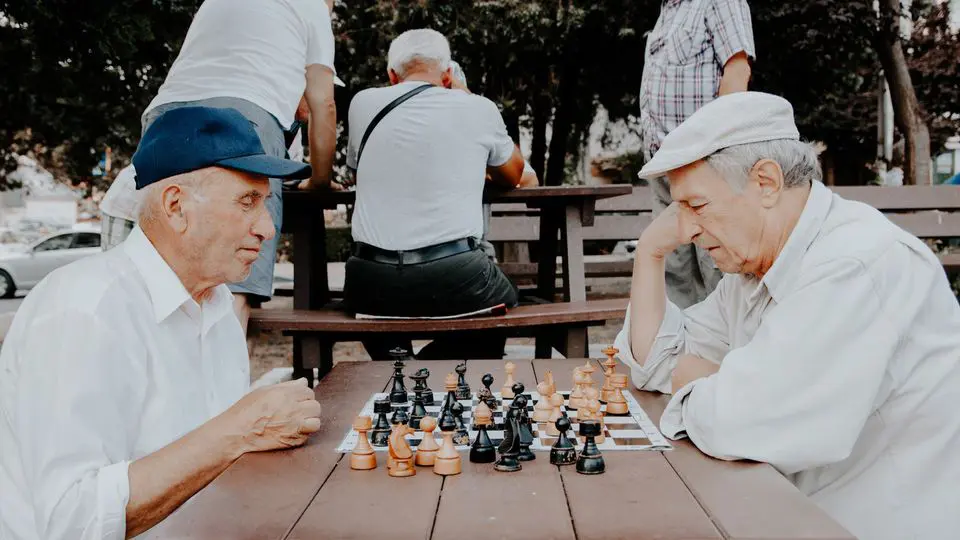Aging adults often require additional assistance from skilled therapists in various disciplines to improve their quality of life. It is important for family caregivers of seniors to educate themselves on the most common types of therapies to effectively advocate for your loved one. Typical rehabilitation disciplines include physical, occupational, and speech therapies; although, less common disciplines such as mental health counseling and recreational therapy can be just as beneficial.
Silverleaf Eldercare partners with a variety of home health companies to provide high-quality rehabilitation services to our residents so you know when you trust Silverleaf with the care of your loved one, they will have everything they need to thrive.
Each unique rehabilitation discipline typically requires a referral from your loved one’s primary care physician or a specialist, but knowing the benefits of each type of therapy empowers you to effectively and confidently advocate for your loved one at doctor appointments. If you have a concern about your loved one’s independence, mobility, mental health, or otherwise, addressing your concern and following up with a request for skilled therapy is a great way to start the conversation with your loved one’s healthcare provider.
7 Types of Rehabilitation Therapies and How They Could Benefit Your Loved One:
1. Physical Therapy:
Physical therapists help patients regain strength, flexibility, and mobility through exercises, stretches, and other techniques. They may also provide assistive devices and recommend modifications to the living environment to enhance safety and independence. Signs your loved one may benefit from physical therapy are frequent falls, complaints of pain (back pain, knee pain, shoulder pain, etc), and decreased activity tolerance.
2. Occupational Therapy:
Occupational therapists assist patients in developing or relearning skills necessary for daily living activities, such as dressing, bathing, and cooking. They may also provide strategies to improve memory, problem-solving, and cognitive abilities. You may notice your loved one struggling to remember things they normally would or maybe their arthritis is interfering with their ability to cook and it’s time to seek help from an occupational therapist.
3. Speech Therapy:
Speech-language pathologists work with patients who have communication or swallowing difficulties. They help improve speech, language, and swallowing abilities through exercises, strategies, and assistive devices. Difficulty swallowing is a common experience as we age and can be distressing for the individual and their caregivers. Speech therapy intervention can help improve swallowing, provide modifications to a person’s diet, and ultimately prevent future hospitalizations from complications of difficulty swallowing, such as aspiration pneumonia.
4. Cognitive Therapy:
Cognitive therapists focus on improving cognitive function, memory, attention, and problem-solving skills in patients with cognitive impairments. They may use various techniques, such as memory exercises, puzzles, and cognitive training programs. If your loved one has been diagnosed with dementia, cognitive therapy can be very beneficial as they learn to cope with their diagnosis.
5. Respiratory Therapy:
Respiratory therapists assist patients with respiratory conditions, such as chronic obstructive pulmonary disease (COPD) or asthma. They provide breathing exercises, administer respiratory treatments, and educate patients on managing their respiratory health. Breathing conditions such as pneumonia can be deadly to aging adults and respiratory therapy is the frontline to combat further complications and keep your loved one breathing easy.
6. Mental Health Counseling:
Mental health counselors offer support and therapy to patients dealing with emotional or psychological challenges. They may provide individual or group counseling sessions to address issues like depression, anxiety, grief, or adjustment difficulties. Transitioning to an assisted living facility can be tough for aging adults and seeking mental health support for your loved one can ease their transition and help them thrive in their new environment.
7. Recreational Therapy:
Recreational therapists use leisure activities and therapeutic interventions to enhance patients’ physical, social, and emotional well-being. They may organize group outings, arts and crafts sessions, music therapy, or other recreational activities tailored to their needs. Socialization and participation in activities that bring you joy are essential to the human experience but they become even more important as we age. Recreational therapy can be a great way to ensure your loved one stays happy and healthy!
Collaboration is the key to rehabilitation. The disciplines mentioned above are often provided by a multidisciplinary team, including therapists, psychologists, and other healthcare professionals, who collaborate to develop personalized treatment plans for each patient. The goal is to maximize residents’ functional abilities, improve their quality of life, and promote independence in their daily lives.
The dedicated leadership and staff at Silverleaf Eldercare are passionate about providing the highest quality care to your loved one, which includes working with an interdisciplinary team of therapists to maximize their quality of life. Silverleaf partners with various home health agencies to ensure that therapeutic interventions are accessible to their residents. If your loved one is experiencing difficulties with their memory, mobility, or mental health, we can help. Set up a tour or contact us today to discover more!

